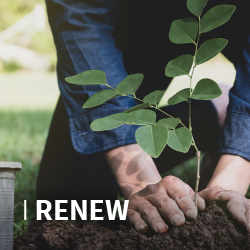During this holiday season, take some time to recycle wrapping paper, cards, and boxes. “When you recycle paper, you’re reducing greenhouse gas emissions, and saving energy,” says Bret Biggers, senior economist at the Institute of Scrap Recycling Industries, Inc. (ISRI). “You’re also helping the U.S. economy.”
According to ISRI’s 2021 Recycling Industry Economic Impact Study, recycled paper materials contributed over $35.3 billion to the U.S. economy and the paper recycling industry supported 145,000 jobs in 2020. The recycling industry processed 130 million metric tons of valuable commodities in 2020, and 42.7 million metric tons were paper materials. The U.S. recycling industry provides more than 506,000 U.S. adults with good jobs and generates approximately $117 billion in annual economic activity.
Recycling is essential to sustainable manufacturing and is an important component of protecting the environment and maintaining American competitiveness. Recycled commodities such as paper, metal, plastics, and others feed U.S. transportation, infrastructure, manufactured goods, electronics, healthcare and personal supplies, and other priority needs for today’s world. More than 75% of U.S. paper mills depend on recovered fiber from recycling operations for their daily production needs.
Recycling paper products is easy, provided you follow a few simple guidelines.
Wrapping papers sometimes are made with non-paper additions—glitter, plastic, foil, and lamination—which make them incompatible with the paper recycling process. If you want to recycle your wrapping paper, plain, non-glossy papers are your best bet. Check the product description along with your local recycling regulations to be sure your post-holiday cleanup won’t contaminate the recycling bin. Brown paper is less likely to have non-paper additives, plus it can be used year-round for a variety of purposes.
Wrapping papers—including decorative tissue paper—not only create an opportunity to recycle, but also use one of the most renewable resources we have: trees. Generally, if you can scrunch wrapping paper up and it stays in a tight ball, it is paper-based and can be recycled.
Ribbons and bows are not accepted by curbside recycling programs. Try to reuse those. Greeting cards and envelopes made of paper can be recycled, if they’re not glittery, metallic, or plastic based.
Boxes from online delivery orders can be used to collect recycling around the house, giving a full life cycle to every paper piece involved in a gift order. Remove any non-paper items from cardboard boxes and flatten them before setting them in your curbside recycling bin. You do not need to remove shipping labels or tape—just keep food and oils off the material.
Paper gift bags can be reused and then usually can be put in the curbside bin. Paper bags are a highly recyclable resource with practical, sustainable markets. The material is highly sought after for its fiber strength and is used to manufacture many products. Polyethylene (PE) and woven bags can be reused, and the PE bag can be recycled at drop-off locations, usually grocery stores. If your paper gift bag has rope handles, glitter, or beads, those need to be removed before the bag goes in the recycling bin.
A good rule of thumb is to throw out any paper that has come into contact with food—except for pizza boxes, which can be recycled after the food and liner are removed. For example, the paper dividers in popcorn tins soak up butter and other flavorings and cannot be processed by paper mills. Used paper cups, plates, and napkins need to go into the trash as well. Used paper facemasks are common this season due to COVID-19. Handle your old disposable masks like used facial tissues or bandages; throw them in the trashcan.
Many municipalities use the inbound and outbound single-stream recycling guidelines found in the ISRI Specifications. So when you’re cleaning up all the paper and wrappings from holiday gifts, remember Recycling Is Essential™, and provides materials necessary for manufacturing and to keep our planet clean and our environment healthy.
This holiday season, do your part to live a more sustainable lifestyle!
Photo courtesy of Storyblocks. Caption: Recycling wrapping paper and other kinds of paper products benefits the environment and America’s economy.













